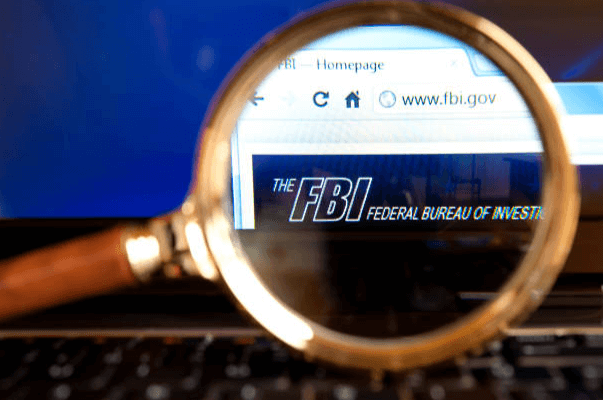FBI Watchlist Search: A Key Tool for AML and KYC Compliance

In today’s complex regulatory environment, businesses cannot afford to overlook compliance obligations. With the rise of financial crimes, money laundering, and terrorist financing, organizations are expected to take proactive steps to prevent illicit activities. One of the most reliable tools available to compliance teams is the FBI Watchlist Search. By screening individuals and entities against the FBI’s consolidated watchlist, businesses can ensure that they remain compliant with Anti-Money Laundering (AML) and Know Your Customer (KYC) regulations.
This article explains the importance of FBI Watchlist Search, how it works, and why it is a cornerstone of modern compliance strategies.
Understanding the FBI Watchlist Search
The FBI Watchlist Search refers to the process of screening customers, vendors, or partners against the Federal Bureau of Investigation’s databases of individuals suspected or convicted of criminal activities. The list includes people connected to terrorism, organized crime, cybercrime, and other high-risk activities.
While the FBI watchlist leak in past years sparked public debate about data privacy and government surveillance, it also highlighted the significance of such databases in safeguarding businesses and national security. For organizations, running a search against this list helps identify potential risks before entering into financial or contractual relationships.
Why It Matters for AML Compliance
AML compliance requires businesses, especially in the financial sector, to detect and report suspicious activities. The FBI Watchlist Search plays a crucial role here. By checking customers against the watchlist during onboarding and ongoing monitoring, institutions can identify whether a client is linked to criminal or terrorist activities.
Failing to conduct thorough watchlist searches exposes businesses to regulatory penalties, reputational damage, and even legal consequences. For example, banks that ignore suspicious connections may face hefty fines from regulators. By integrating FBI Watchlist Search into their AML compliance programs, organizations can demonstrate due diligence and minimize the risk of facilitating money laundering.
The Role in KYC Compliance
Know Your Customer (KYC) regulations emphasize verifying the identity of clients and assessing their risk profile. Beyond collecting basic identification documents, businesses must ensure that the customer is not a known threat.
Here, the FBI Watchlist Search becomes essential. During the KYC onboarding stage, screening applicants against the list provides an added layer of security. This not only protects businesses but also reassures regulators that the company is committed to safe and transparent financial practices.
When combined with other KYC checks, such as sanctions screening and politically exposed persons (PEP) monitoring, the FBI Watchlist Search ensures a robust risk management framework.
How FBI Watchlist Search Works
Modern compliance solutions allow businesses to integrate the FBI Watchlist Search into their onboarding systems. Here’s how the process typically unfolds:
- Data Collection – Customer or partner information is gathered during registration or account creation.
- Screening – The details are cross-checked against the FBI watchlist and related databases.
- Match Analysis – Potential matches are flagged for further investigation by compliance officers.
- Ongoing Monitoring – Continuous checks ensure that existing customers are re-screened against updated lists.
This process ensures that businesses remain compliant in real time, instead of treating compliance as a one-off activity.
The FBI Watchlist Leak and Its Implications
The FBI watchlist leak that circulated online raised significant concerns. While the leak revealed sensitive information about individuals on the list, it also underscored the importance of secure data handling and the scale of law enforcement efforts to combat crime.
For businesses, the incident highlighted two major lessons:
- The critical nature of the watchlist – It showed how essential such data is for preventing financial crime.
- The need for security in compliance tools – Organizations must use trusted providers to ensure sensitive data remains confidential while conducting searches.
Despite the controversy, the value of the FBI Watchlist Search in compliance remains undeniable. Businesses must prioritize ethical and secure use of these databases to avoid misuse while still meeting regulatory demands.
Benefits for Businesses
Adopting the FBI Watchlist Search in compliance workflows offers several advantages:
- Regulatory protection – Businesses avoid fines and penalties.
- Fraud prevention – High-risk individuals can be identified early.
- Reputation management – Demonstrates a commitment to transparency and ethical operations.
- Operational efficiency – Automated tools save time and reduce manual errors.
These benefits make it clear that watchlist screening is not just a regulatory burden but also a strategic advantage for organizations aiming to build trust and security.
The Future of Watchlist Searches
As financial crimes become more sophisticated, so too must compliance strategies. The future of FBI Watchlist Search will likely involve artificial intelligence and machine learning to identify hidden risks more effectively. Real-time updates, global database integration, and predictive risk scoring will further strengthen AML and KYC programs.
In this evolving landscape, businesses that invest in advanced compliance tools will be better positioned to handle regulatory challenges while staying ahead of criminal tactics.
Conclusion
The FBI Watchlist Search is more than just a compliance requirement—it is a vital defense mechanism for businesses against financial crime. By embedding it into AML and KYC compliance programs, organizations can protect themselves from regulatory penalties, fraud, and reputational harm.
Although controversies like the FBI watchlist leak raise important questions about data privacy, they do not diminish the importance of watchlist searches. Instead, they highlight the need for secure and ethical practices. For businesses committed to compliance and trust, integrating FBI Watchlist Search is no longer optional—it’s essential.





